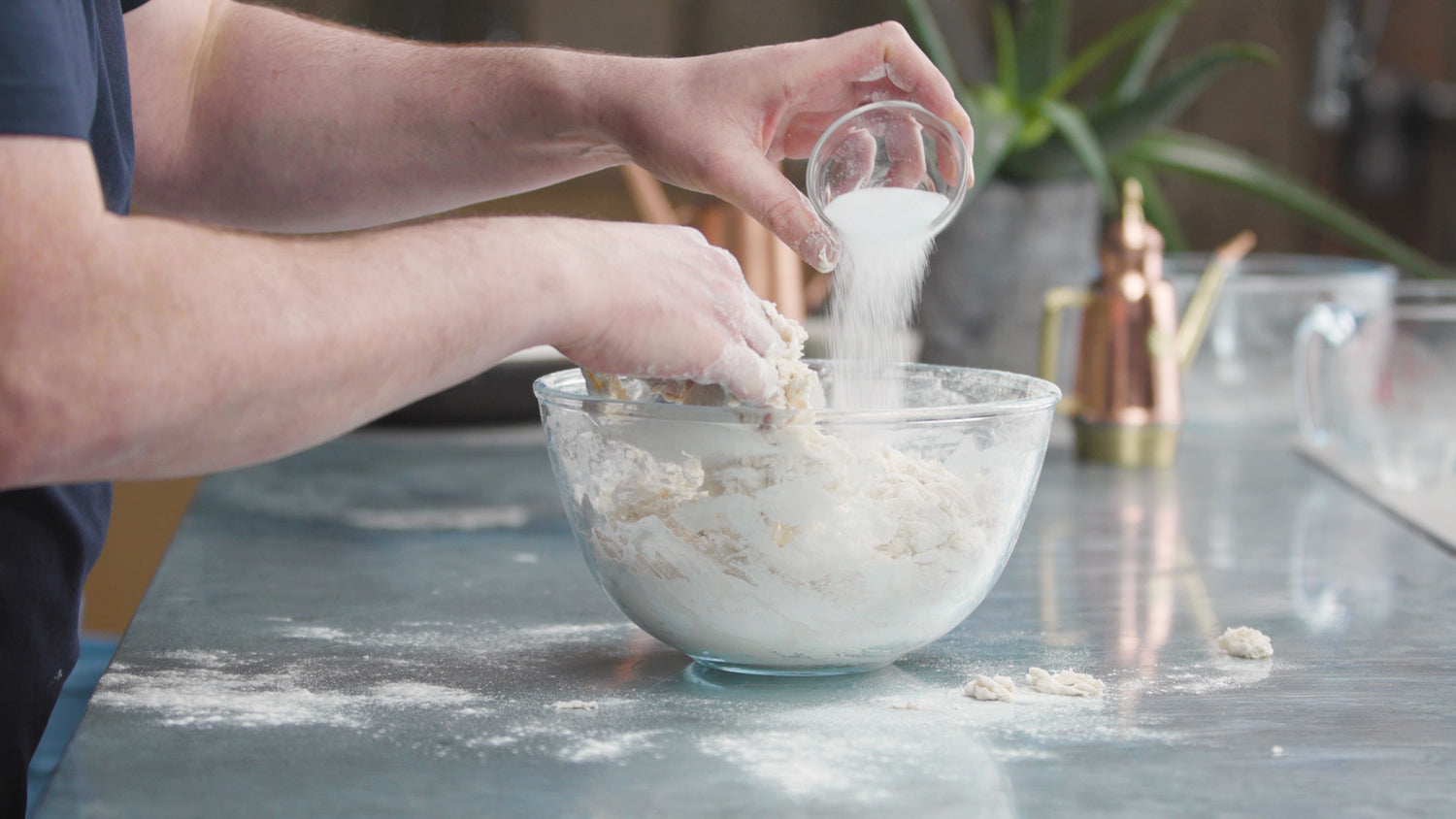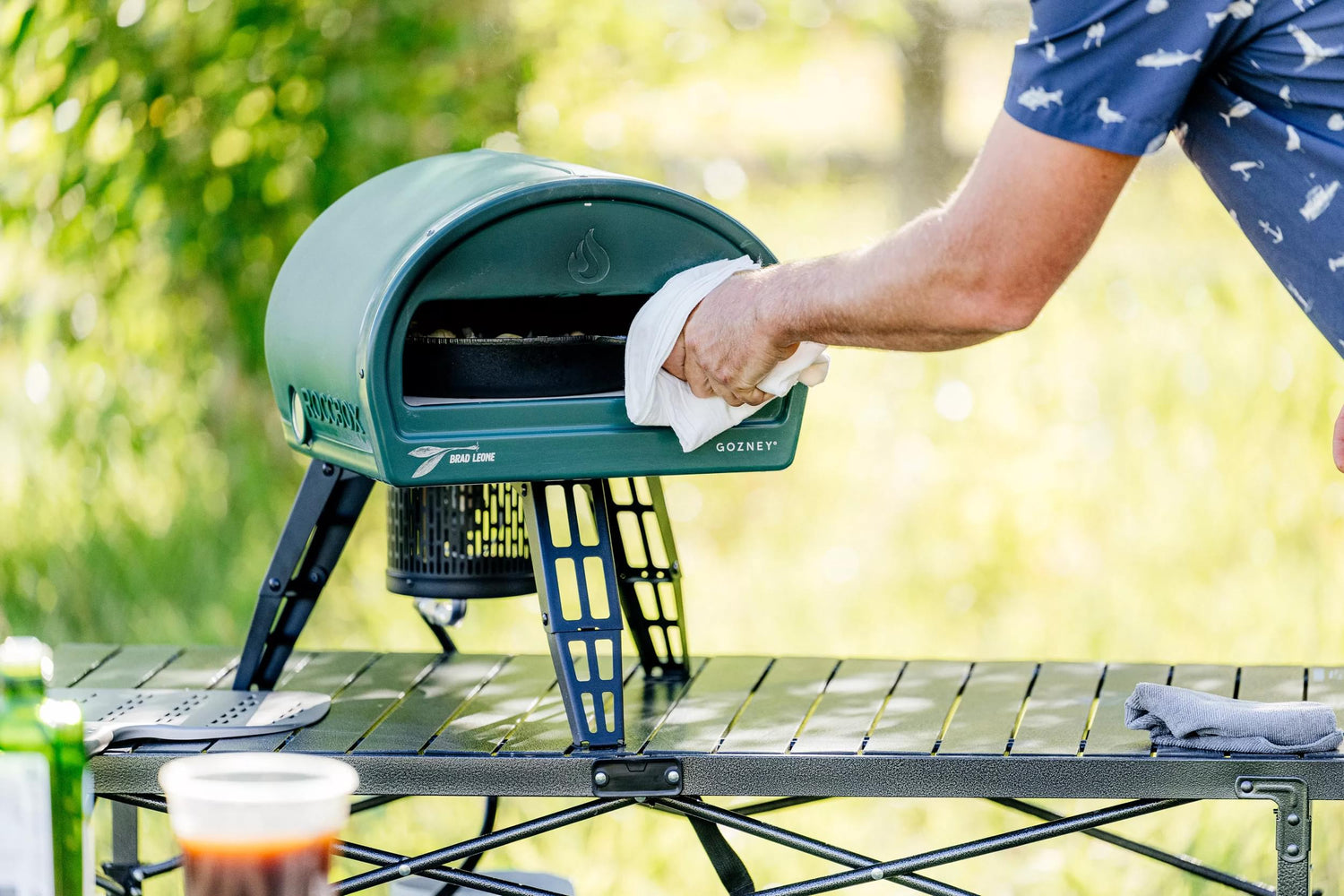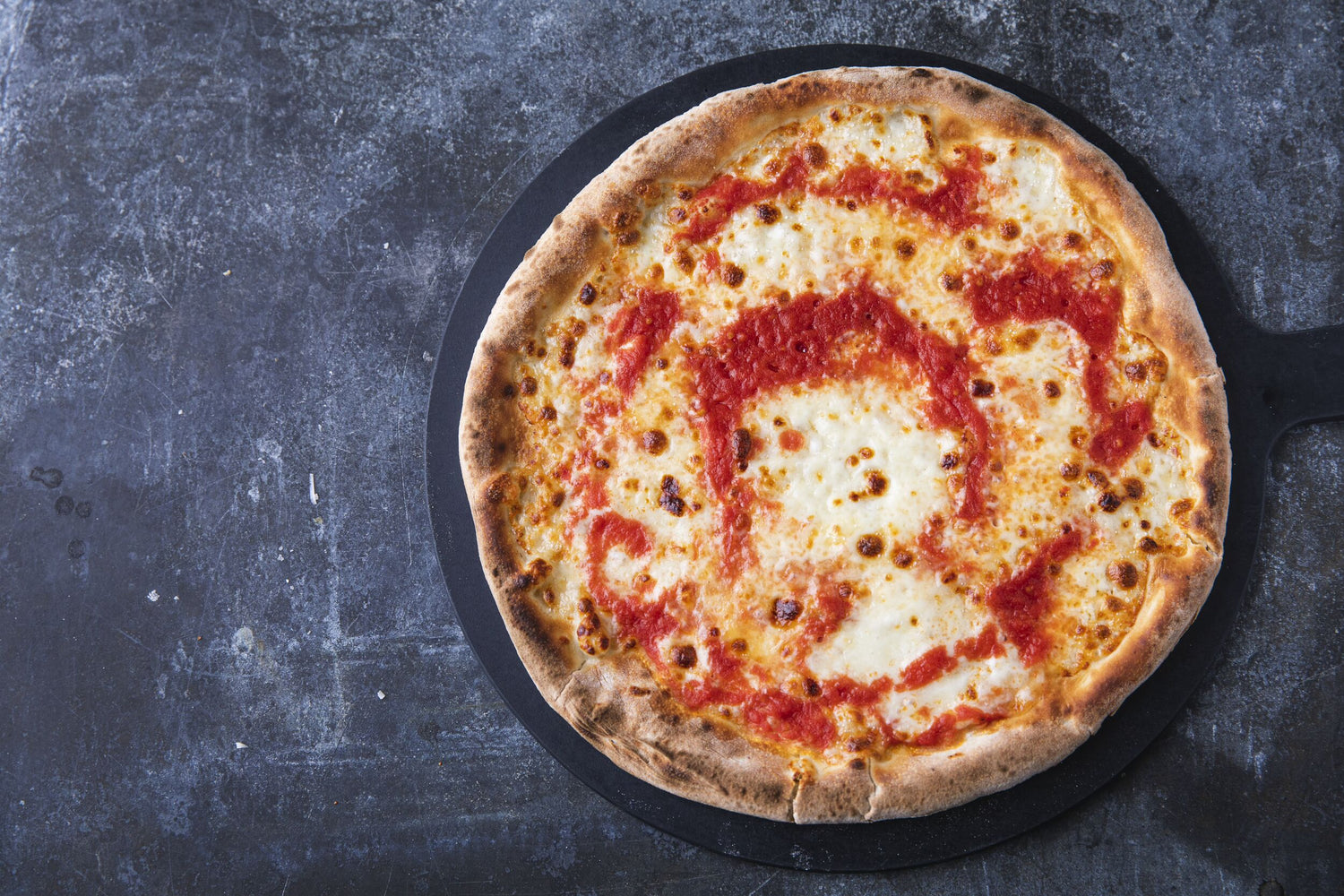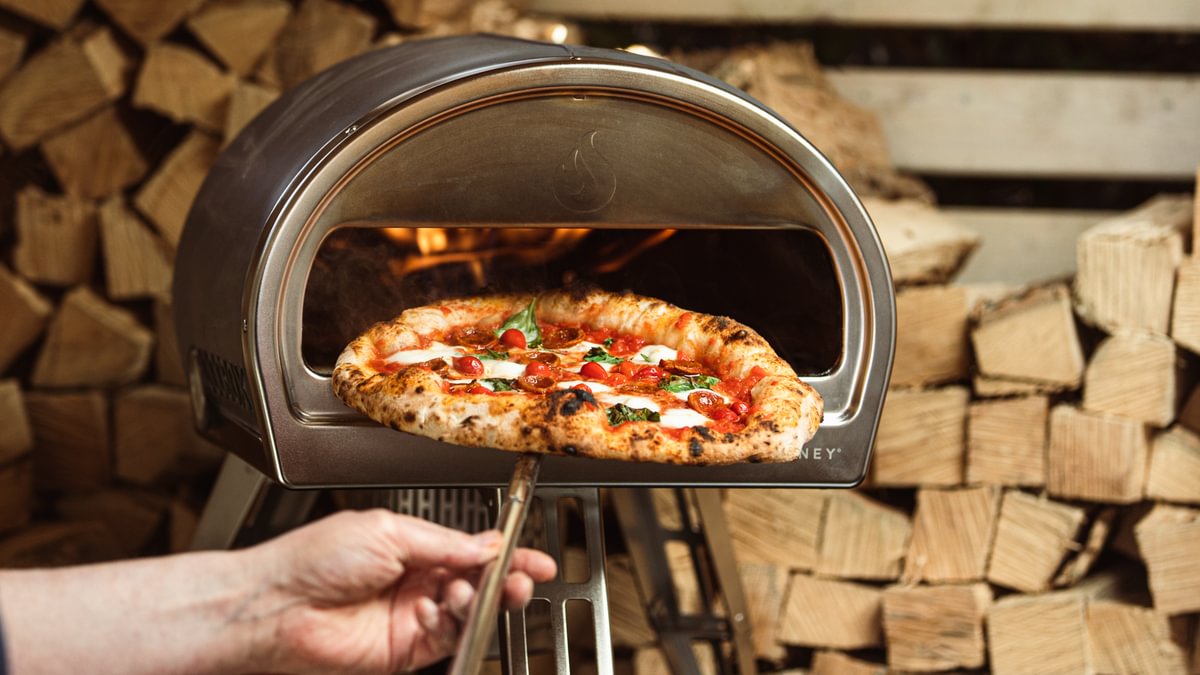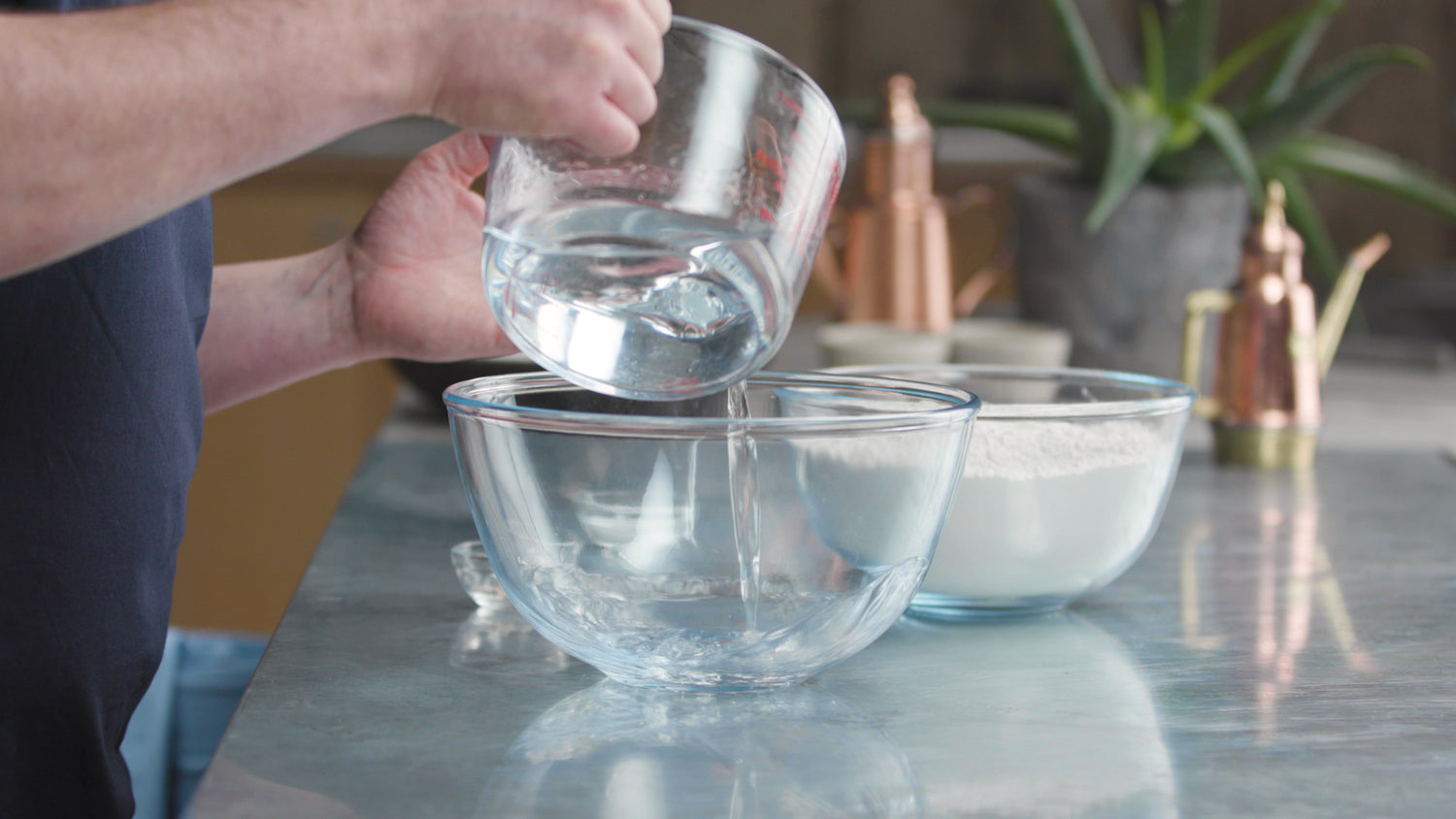Gluten is one of the most important structure-building proteins responsible for the appealing quality and structure of pizza dough.
It’s hard to talk about gluten without diving into food science, so it can be a confusing subject. But don't worry, all the information you need to know is right here and once you’ve got a basic understanding of what gluten is and how it works, that knowledge will take you (and your pizza dough) a long way.
What is gluten?
In order to fully understand gluten, it helps to have a little background on flour - we recommend you read our Best Flour For Pizza blog.
A common misconception is that gluten is part of flour. Technically, this isn’t true. Gluten is formed from flour when water is added. That bag of all-purpose flour sitting on your counter contains two proteins necessary to form gluten: glutenin and gliadin. When water (or a liquid including water, like milk) is added to these two proteins, they link together, forming gluten.
So instead of thinking about how much gluten a certain flour contains, it’s more accurate to think about how much gluten-forming protein the flour contains.

How much gluten in pizza dough?
There are three commonly used types of flour for making pizza dough and they all vary in gluten content.
Different pizza styles require different amounts of gluten (protein). Pizza flours range from 9 to 15% gluten content. While high gluten content will yield a firmer and stronger dough, lower gluten content flours will produce a softer dough.
Plain flour has a lower protein content – around 9-10% which is slightly too low for pizza making.
Strong white bread flour has around 12-14% protein content - high gluten flour gives a texture a bit more like bread – like a sourdough or ciabatta with its holes.
Both Tipo 0 and Tipo 00 flours have just the right amount of protein content - around 12.5% for pizza baking.
How to develop gluten in pizza dough?
Now that we’ve got the right amount of gluten-forming protein in our flour, we want to optimize its development into gluten. For gluten to form, the proteins must configure themselves in the right way. Practically speaking, three major things are required for proper gluten development:
Dough hydration
As mentioned earlier, water (or a liquid including water, like milk) triggers the gluten development process.
By adjusting the hydration of the dough you will also adjust the gluten structure. Dough hydration is simply the amount of water compared to the amount of flour in the dough. This is measured in percentages, such as 60% hydration.
When you increase the hydration, it will soften the gluten strands that makes up the gluten network. This allows it to stretch thinner and will therefore create larger air bubbles. Thinner gluten strands will also get crispier during baking. So if you want a crispier crust with larger air bubbles and a better oven spring, you should add more water to your dough.
Want to learn everything about pizza dough hydration? We have a must read blog Pizza Dough Hydration Explained.

Kneading to develop gluten
When you knead the pizza dough, the gluten in the flour will develop, and create a network of small walls. These walls will trap the CO2 created by the fermentation process, where yeast is eating the sugars in the flour. It’s therefore important to develop gluten properly, to create strong enough walls to hold the CO2. This is done by kneading the dough. The more you knead the dough, the stronger the gluten walls are going get. And the stronger the walls are, the more the dough will keep is structure and shape.
If you don’t knead the dough enough, it’s not going to be able to hold on to the CO2. The reason is that the walls aren’t strong enough, and the CO2 will escape. You will then end up with a dense dough that’s not great to work with. You’ll also not get the light, fluffy consistency that we’re looking for in a pizza crust.
Autolyse
Another way to develop gluten, in addition to kneading, is by using a method called autolyse. Autolyse is a baking technique where you mix the ingredients, but before you start kneading the dough, you let it rest for 15-30 minutes. This short rest will give the gluten enough time to fully hydrate before you start kneading. When the gluten hydrates, it will start to develop. At the same time, the amylase enzymes start turning starch into sugars and give the yeast a head start.
By introducing an autolyse step, you will also reduce the kneading time because the gluten has already had time to hydrate and developing the gluten network.
Time for final proofing
The last step is to proof the dough balls. This is usually the longest step in the process. You can do the final proofing either at room temperature or at a lower temperature to slow it down. Pizza dough should proof at room temperature anywhere from 1 to 24 hours or even more. Whilst cold proofing a pizza dough can take anywhere from 24 to 72 hours.
Learn everything you need to know about kneading and how to proof pizza dough here.
What is in gluten free pizza dough?

After learning the important role gluten plays in pizza dough, you might be asking yourself 'How is gluten free pizza made?'. Well, quite simply, gluten free pizza is pizza made with gluten free ingredients. In most cases, gluten free pizza is made with a combination of gluten free flours and starches like rice flour, almond flour, potato starch, and tapioca starch.
However, pizza dough made with gluten-free ingredients lack a cohesive and elastic nature due to the absence of gluten. The pizza dough will be less stretchy and have a much different consistency. When making gluten-free pizza dough, you must be extremely careful not to tear your pizza dough when stretching.
If all this talk of pizza is making you hungry, here is our easy to follow Gluten free pizza recipe.
Gluten-free flour
In recent years, various alternative approaches have been adopted to modify functional attributes necessary for gluten-free pizza development.
There are a variety of gluten-free flours on the market, each with a different taste, texture and nutrient composition. Some of the most popular gluten-free flours are:
Now it is time to put your knowledge to the test - invite some friends and family over this weekend, fire up your Gozney Pizza Oven and give our Simple pizza dough recipe a go!
Want to learn more about pizza making? Sign up to our email list below and follow us on social @gozney.

